The Global Cardio-Oncology Summit (GCOS) is an annual international conference that unites experts in cardiology and oncology to advance the rapidly growing field of cardio-oncology. Organized by the International Cardio-Oncology Society (IC-OS), the summit highlights the latest research, clinical innovations, and collaborative efforts to prevent and manage heart complications related to cancer treatments. The 2025 summit was held from October 30 to November 1 in Cape Town, South Africa. It serves as a vital platform for healthcare professionals worldwide to improve outcomes for patients living with both cancer and cardiovascular disease.
Maria Sol Andres, Clinical Research Fellow in Cardio-Oncology at Royal Brompton and Harefield hospitals, shared some key highlights from the Global Cardio-Oncology Summit 2025:
“Wrapping up session 2 – Day 1 of GCOS2025
- Cancer cells proliferate in unloaded hearts (can rhythmic mechanical stimulation reduce the tumour size? > still early stage research
- Ferroptosis plays an important role in cardiotoxicity.
- NO IV IRON if patient is receiving ANTHRACYCLINES”
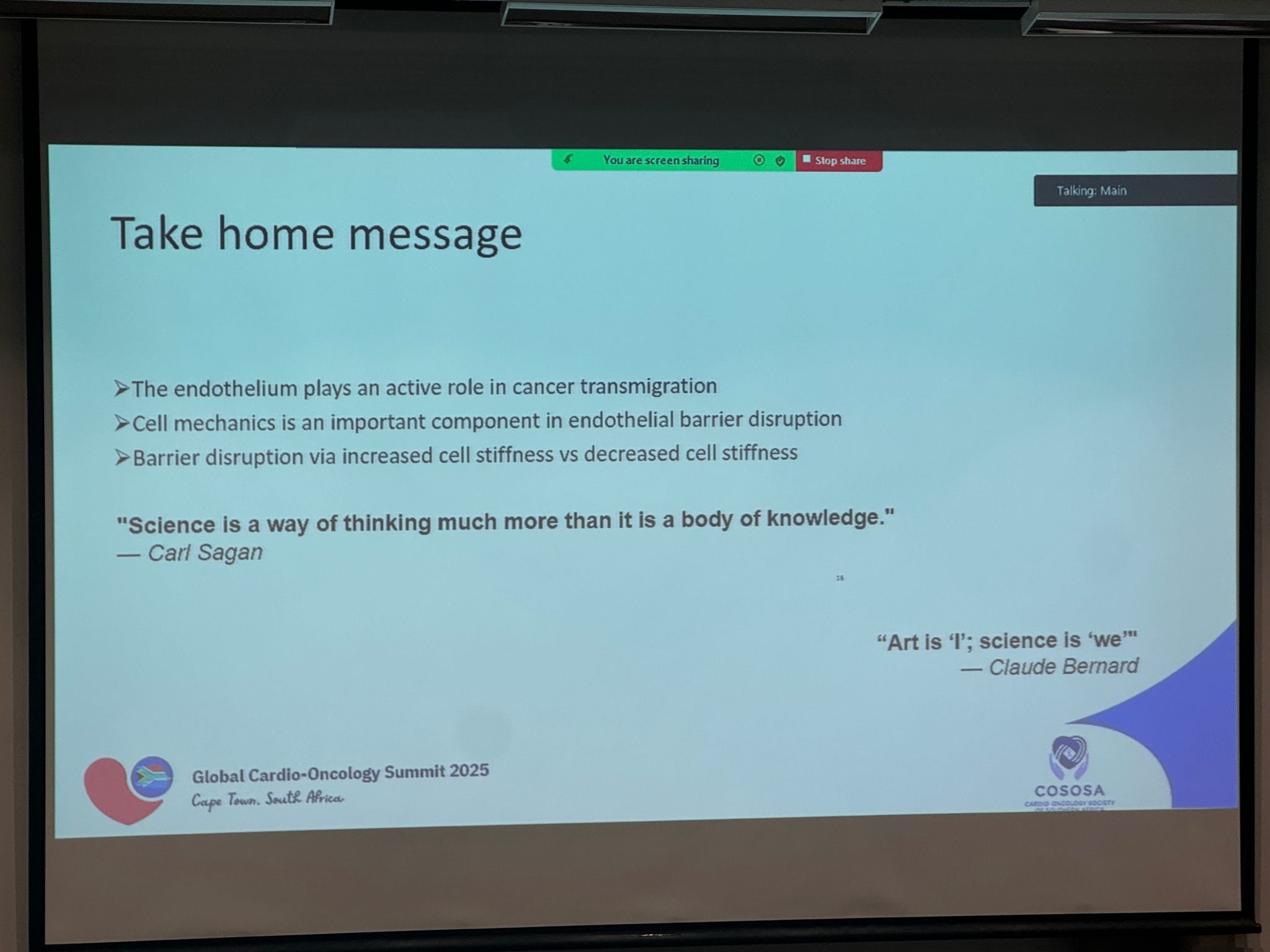
“Ongoing Keynote Lecture by Dr. Ruth Plummer GCOS2025
‘Development of New Cancer Drugs — The Path to Clinic and Cardiotoxicity Monitoring’
1st — We ‘grow up’:
The maximum tolerated dose is not always the optimal dose.
2nd — We monitor ‘obsessively’:
Close and continuous cardiac monitoring is essential.
3rd — We grade:
Every toxicity is tracked, evaluated, and learned from.
4th — We align:
Following the ESC cardio-oncology guidelines ensures consistency and patient safety.
What’s New?
Antibody–drug conjugates – targeted precision with powerful payloads Immunotherapy — including bispecifics that engage multiple immune pathways Genomic profiling — tailoring therapy through molecular insight
The Exciting Present and Future of Cancer Treatment
As innovation accelerates, let’s make sure our patients’ hearts can tolerate the thrill.”
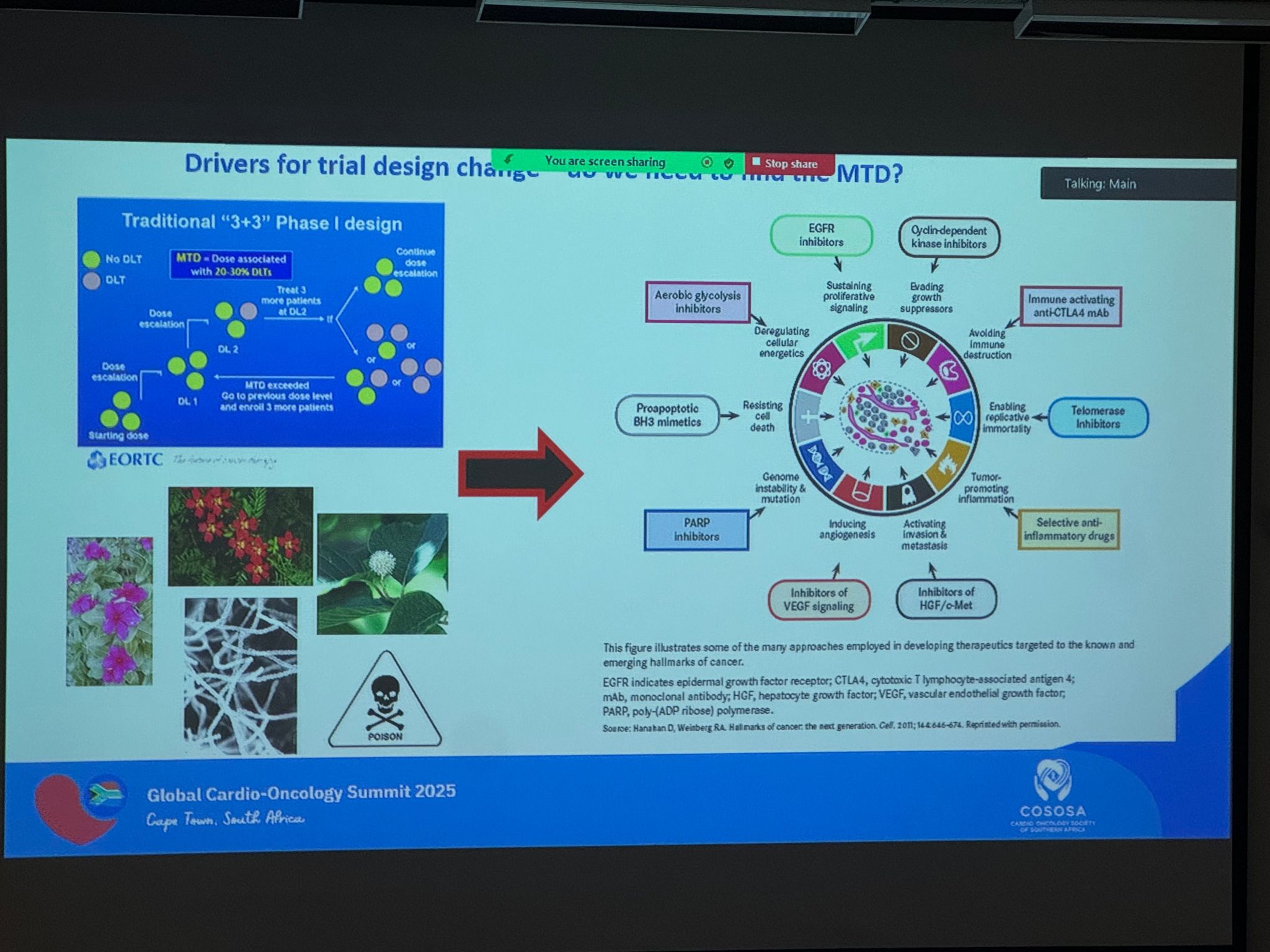
“Primary care in CardioOncology — highlights from the great Siva Tharshini Ramalingam
Key messages
- Primary care physicians are the first point of contact for patients.
- Early recognition of cardiovascular (and systemic) side effects of cancer therapy = education is essential.
- Diagnostic challenge: the therapy context changes the differential diagnosis.
Dr. Ramalingam inspired us to become ‘International Agents of Change.’
Challenge accepted!”
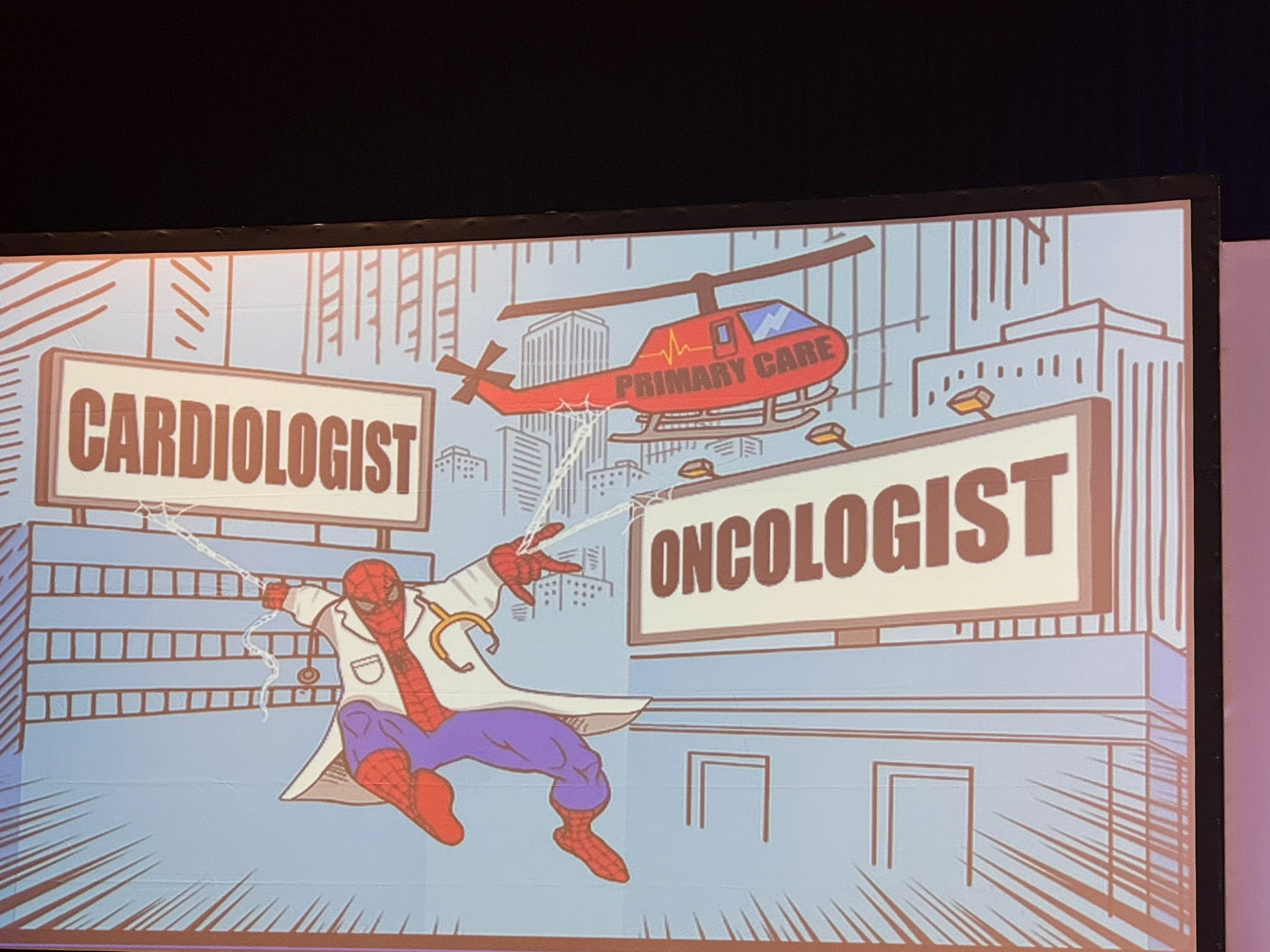
“Global Cardio-Oncology Summit 2025
CARDIO-ONCOLOGY across AFRICA
Souhila Ouabdesselam (Algeria), Dr. Kieran Mwazo (Kenya), Nana Poku (Ghana / Switzerland), and Trishun Singh (South Africa) delivered insightful presentations on the current state of cardio-oncology in Africa.
Common Challenges
- Transition from an infectious disease focus to long-term CVD and cancer care
- Limited resources for both treatment and prevention
- Inadequate specialist training in emerging fields
- Lack of standardised cardio-oncology programs across many regions
Opportunities and Next Steps
- Strengthen preventive medicine and continuous education
- Prioritize cardiovascular risk factor modification — going back to the basics
- Empower pharmacists as the first point of contact with patients
- Foster political will and stability for long-term strategy implementation
With collaboration, education, and advocacy, the future of CardioOncology in Africa looks promising.”
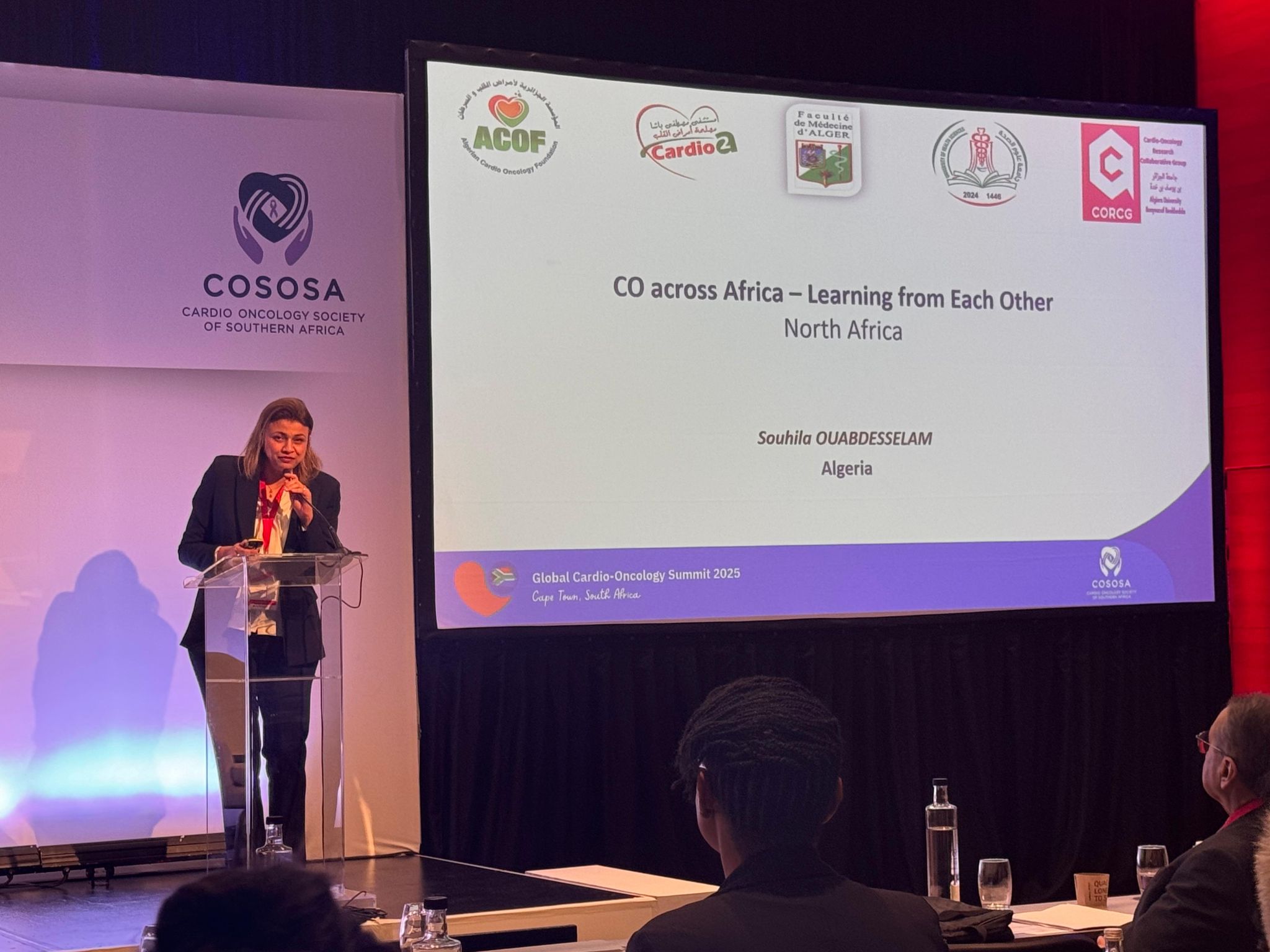
“Venous Thromboembolism in Cancer Patients — insights from Dr. Sebastian Szmit
A key clinical question:
What should we do when lifelong or extended anticoagulation is required?
The API-CAT trial provides important evidence — showing that extended anticoagulation with a reduced dose of Apixaban is non-inferior to the full dose in preventing recurrent VTE.
A step forward for personalised care in cardio-oncology and thrombosis management.”
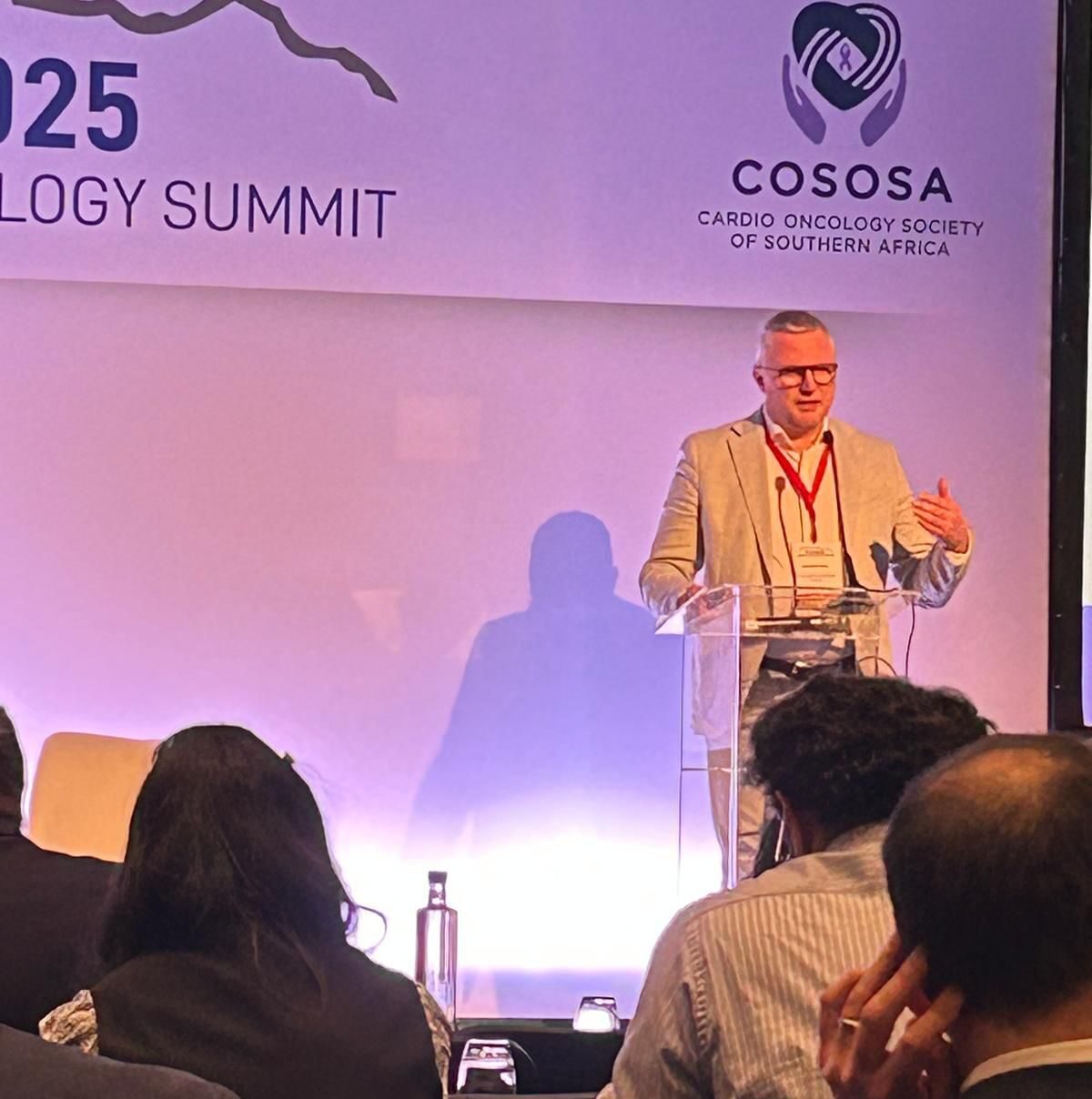
More posts from Global Cardio-Oncology Summit.


